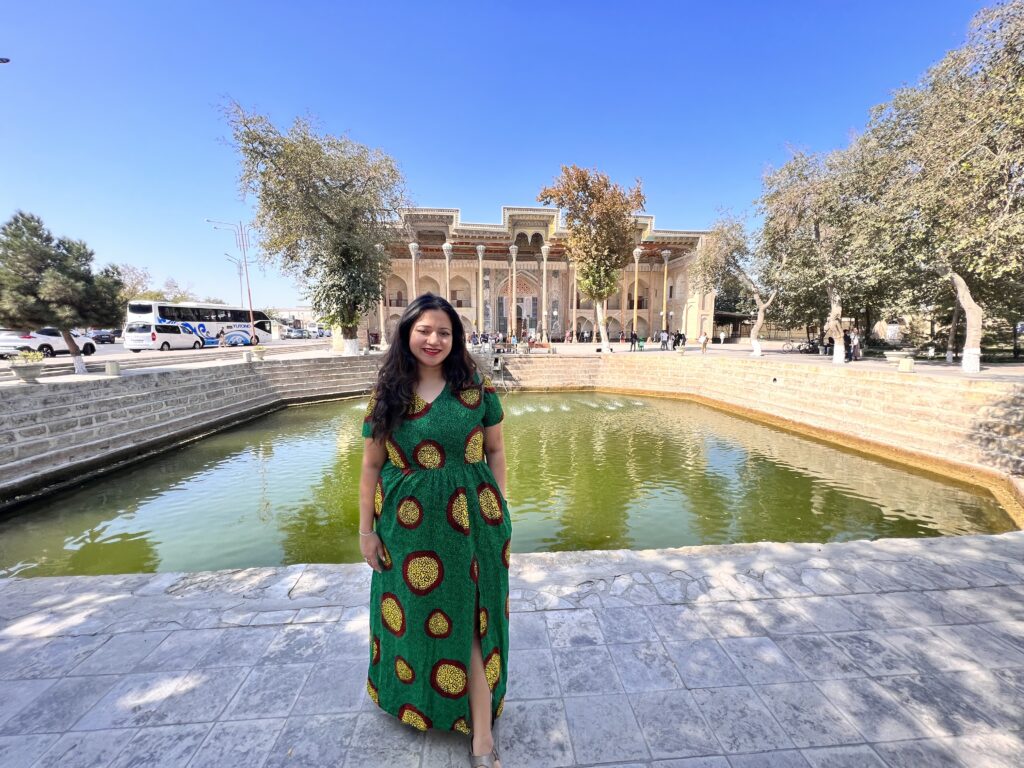
I was an exceedingly curious child, often driving my parents and teachers to the brink with my endless questions about the workings of the world. This curiosity led me to travel the globe, exploring over a hundred countries and delving into the diverse ways in which people lived, ate, formed connections, and built societies. Most significantly, I sought to understand how people relate to each other through language.
As a Bangladeshi, my affinity for language runs deep, given our unique history as the only people to fight for an independent country based on our mother tongue. Beyond that, languages have always fascinated me; I had already learned to speak four by the age of 10. My inquisitive mind sought to make sense of the world by learning words in different languages, culminating in my decision to learn my fifth language, French, in high school.
Upon moving to Germany, I faced a culture shock surpassing any I had experienced before, to understand the Deutsche world around me – I had to learn the language. So, at age 32, I decided to take up the challenge of learning my sixth and arguably most challenging language yet – German. The process, even for a polyglot like myself, was not easy, but through trial and error, I came across a method that worked splendidly for me – the F.A.S.T method.
What is the F.A.S.T method?
Developed by the Language and Motivation School, the F.A.S.T method employs multiple learning approaches that cater well to adult learners. F.A.S.T stands for Fundamental Based, Adult Specific, Stimulating, Tailor Made learning. Emphasizing the fundamentals of language, it guides the translation of thoughts into words through an adult-focused teaching method. I can’t express enough how much I appreciate this method, it is perfect for those of us who are curious and love immersing ourselves in learning. What work best for me in this method was the adult focused, tailor made learning element of it – I had the opportunity to work within my own schedule and from literally everywhere in the world. The online nature of the classes helped me take lessons in Central Asia, in West Africa and in Europe! The homework serves as a perfect opportunity to delve deeper into the language, with stimulating exercises that enhance the learning experience. The 1.5-hour classes, led by dedicated teachers following tailor-made lesson plans, further contribute to the effectiveness of this method.

One of my significant concerns about learning a language at this stage in my life stemmed from previous school experiences. Teachers seldom tapped into my curiosity, and their patience with my endless questions was always lacking. These fears initially hindered me from seeking guidance from a dedicated teacher, as I worried about being labeled troublesome instead of recognized for my inquisitive nature. Yet, despite these concerns, I managed to progress from zero to A2 level by my 11th lesson, thanks to the patient nature of my teacher at the Language and Motivation School—Frans. Before each lesson, I invested only 3 or so hours in preparation per week, doing reading, writing, listening and speaking exercises about current news and business subjects. Learning German became an exciting journey, with peaks and valleys mirroring my adventures around the world. Frans patiently listened to my grammatically flawed German sentences, corrected my mistakes, and answered my endless questions. His calm demeanor, shaped by decades of teaching various foreign language students, facilitated my transition from constructing basic greetings to exchanging jokes in German—a notable achievement given common stereotypes about the language. As I prepare for my B1 exam, I reflect on how my life has transformed for the better through my decision to invest in learning German. Here are a few that come to mind:
- Residency and Job opportunities: With a degree from Germany and two years of work experience, learning German has accelerated my path to permanent residency from five years to just two. Achieving a B1 level in three short months is ideal for professionals with tight schedules seeking rapid progress. Furthermore, proficiency in German opens up a multitude of employment opportunities in the largest job market in the European Union and the fourth-largest economy globally.
- Enhanced Cognitive Function: Learning German rekindled my love for language, stimulating a part of my brain that has opened up various avenues for me. Research indicates that individuals who speak multiple languages from a young age possess more neurons, dendrites, and thicker grey matter than their monolingual counterparts. Additionally, studies suggest that multilingual individuals often exhibit increased creativity, superior problem-solving skills, improved concentration, and enhanced communication abilities. I have witnessed these benefits in real time, feeling like I can access a part of my brain previously untapped. German has sharpened my critical thinking skills, given the unique sentence structure compared to English, providing a slightly different perspective each time I construct sentences in German.
- Understanding Germany better: The more languages we speak, the more enriched our travel experiences become, as we absorb knowledge from diverse surroundings. I’ve observed that people worldwide share a fundamental desire to connect, and learning German has bridged the gap between myself and the German environment. This understanding is slowly helping me navigate the country, culture, and its people, alleviating the culture shock experienced at the beginning of my time in Germany.
- Human Connection: As a storyteller, I’ve discovered that learning a language facilitates connections with individuals we might otherwise struggle to communicate with. During travels in the Balkans with a friend this summer, lacking any Albanian or English between us and our driver, we communicated in German. Similarly, in Berlin, a Turkish-German cab driver shared his longing for his German-born children to connect with their Turkish roots during a 2 am ride home after a party.

These stories, connections, and shared moments with people worldwide have only been possible thanks to the common languages we speak. And the significant difference in my life has been due to the pace at which I was able to learn German, thanks to the F.A.S.T method. I frequently surprise myself with my heightened comprehension skills which helps me make sense of the Deutsche world around me better. The endless questions of mine are now easier to answer and my excitement to continue to learn the language has got me thinking – should I learn my 7th language? What language do you think I should learn? Let me know below!

